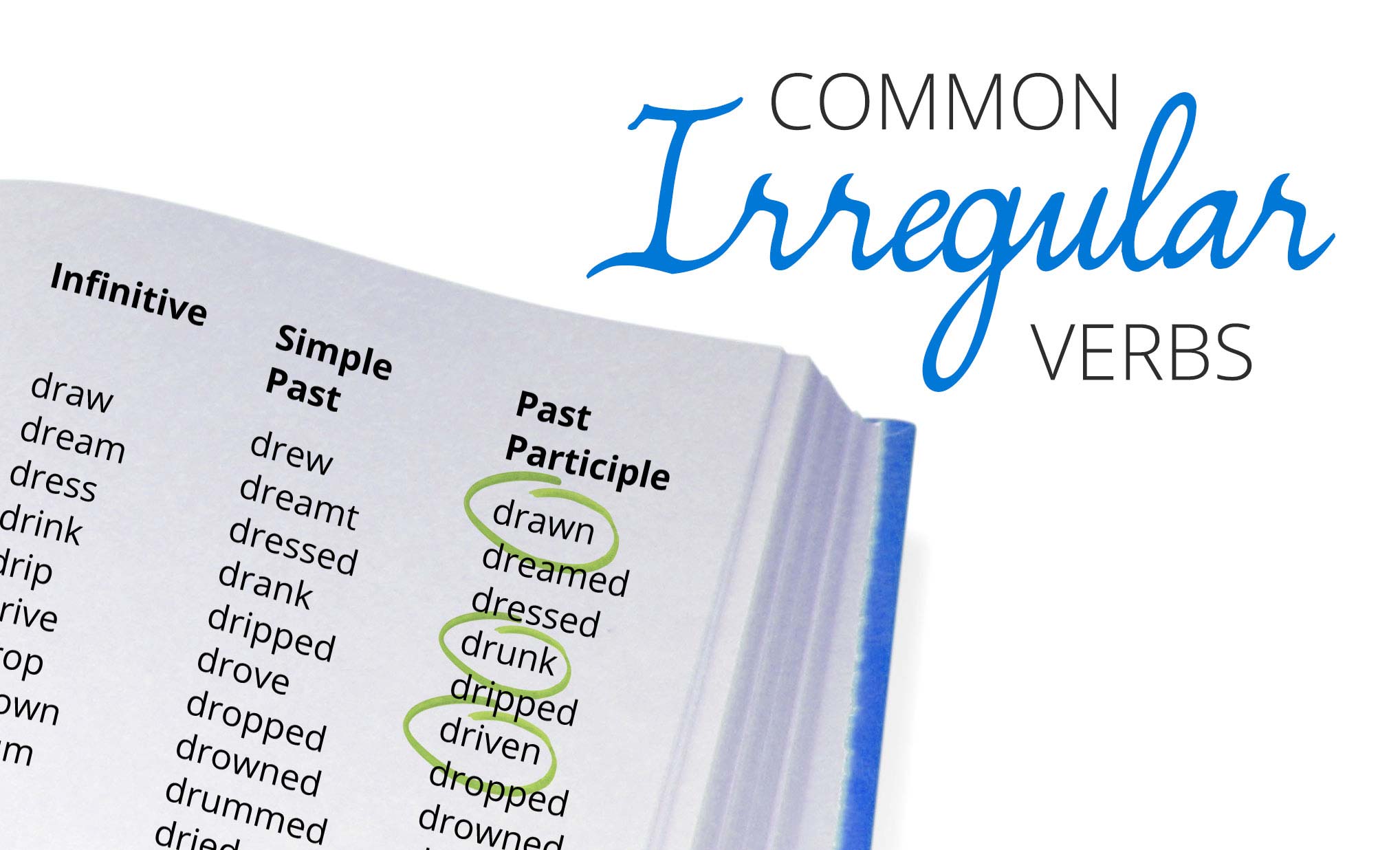

See the pattern? Here’s the regular verbs definition : Words that follow the regular verbs pattern including the past and past participle rules that add the suffix -ed to the end of an action or state of being. This sentence adds to the irregular verbs examples down below but we will get to how it functions in the next section. The word, hurried is the past participle describing the lawyer’s movement. It describes nouns or pronouns that the word is referring to. For example, here’s the conjugation pattern for the word smile.Īlso, when using regular and irregular verbs in the past participle, the word can act as an adjective. Īnother form of regular action and state of being words that end in an e follow a slightly different pattern, but the idea is the same. Regular words i nclude the words: bake, play, label, and blend. This is also the same pattern you use when a word that contains a combination of consonants at the end of the word.
:max_bytes(150000):strip_icc()/irregular-687909584-5ab2f9c53418c600360fe102.jpg)
The first conjugation pattern works with words that have a long vowel sound ending in a consonant. There are a few patterns to memorize if you want to remember all the regular word structures, however. Just adding the -ed to the end of the stem word conjugates it to relate it to a state of being in the recent past. Adding a suffix to the end of the word looks like this. In the present tense the word remains the same. The stem stays the same when it comes to the present tense, but if you want to talk about the past, then you add different suffixes to set the tense. Regular verbs follow a consistent conjugation pattern. This will help you define irregular verbs and give you your own regular verbs definition.
#English irregular verbs past pdf#
It includes irregular verbs examples, links to irregular verbs list pdf from other sources, and fodder to create your own irregular verbs worksheet and definitions. Īfter you know the basics, look at this page for further information. You’ll also discover why tense is so important when learning about regular verbs and irregular verbs. This article will teach you about the regular verbs definition, the difference between regular and irregular verbs and the special irregular imperfect verbs. In addition, both irregular and regular verbs describe what people do and who they are. Why? Because you’ll find a verb in every written and spoken sentence. The truth is that you won't master English without studying them.( 22) Regular vs Irregular Verbs: Let’s Talk About the PastĪction, state of being, and linking words are incredibly important in the English language.
#English irregular verbs past how to#
There's no real trick to learning how to use irregular verbs. So, if you're learning or teaching English, you must embrace them. Somewhat counter-intuitively, the most common verbs in English are irregular. Here is a Venn diagram that explains how verbs are classified: Similarly, the terms "regular verb" and "weak verb" are not synonyms. The terms "irregular verb" and "strong verb" are not synonyms (i.e., they do not mean the same). Infographic Explaining Strong, Weak, Regular, and Irregular Verbs Here are some examples of strong and weak irregular verbs: Irregular Verbs Can Be Strong or Weak VerbsĪn irregular verb can be either a weak verb (when its past forms end "–d" or "-t") or a strong verb. Some irregular verbs do not change their forms for the simple past tense and the past participle: learnt, dreamt) is more common in British English. The following verbs can be regular or irregular: Listed below are the most common irregular verbs in English: The Most Common Irregular Verbs in English Now, compare those irregular forms with those of regular verbs, which just add "-ed" or "-d": With an irregular verb, the past form and past participle are often different (but not always). It is somewhat ironic that the most regularly used verbs in English are irregular. Use the buttons to form the past tense and then the participle of the irregular verb shown.

(There are spelling rules to consider when forming the simple past tense or past participle of a regular verb.) Irregular verbs contrast with regular verbs, which form the simple past tense and past participle by adding "-ed" or "-d." What Are Irregular Verbs? (with Examples)Īn irregular verb is one that does not form its simple past tense or its past participle by adding "-ed" or "-d" to the base form.


 0 kommentar(er)
0 kommentar(er)
